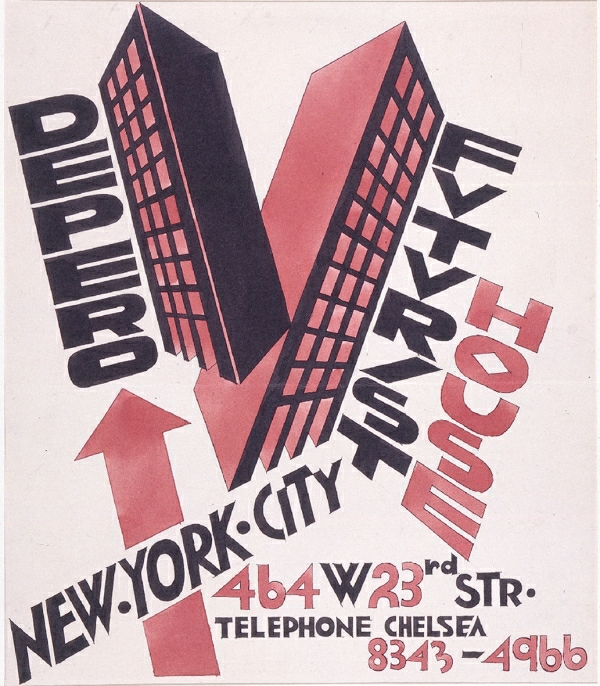Depero the Futurist
and the Impact of Futurism on Avant-Garde Art
Hungarian National Gallery, 04. 06. – 22. 08. 2010
The year 2009 marked the 100th anniversary of Futurism, with a number of Futurist exhibitions held in various countries. Over the past twenty years there has been growing interest in the art of versatile Futurist painter Fortunato Depero (1892-1960), an ardent follower of Marinetti’s aesthetics. The over 100 works displayed at the Budapest show are on loan from the Museo Fortunato Depero, Rovereto, an integral part of MART, where the collection of works left by the artist to the town is housed. Living in Austrian-controlled Rovereto until 1918, Depero was in fact raised in a Central European milieu. His artistic development was influenced by Symbolism and Expressionism, and also by the schools of Jugendstil and Wiener Werkstätte. During his trip to Rome he established contact with important Futurist painters such as Boccioni, Balla, Prampolini and Marinetti. His Futurist principles were summarized in the manifesto Ricostruzione futurista dell’universo (Futurist Reconstruction of the Universe), co-authored with Giacomo Balla in 1915, proclaiming the re-creation of the universe and the extension of art to all areas of life. Through his Futurist formal experiments he envisaged mobile sculptured constructions utilising the combined impact of movement and sound effects.
It is part of the mission of the Hungarian National Gallery to provide opportunities for the public to view major works of Hungarian art in an international context. For this reason, the Italian exhibition that features the work of Depero is accompanied by a show of a selection of nearly sixty works by Hungarian artists who, from the 1910s onward, were applying in their works the lessons of new trends in contemporary European art. The elements Hungarian painters took over from the toolkit of Italian Futurists mainly included aspects indicating activity and revolutionary action: militant dynamism, the collision of opposing forces, the momentum of mass movements.

